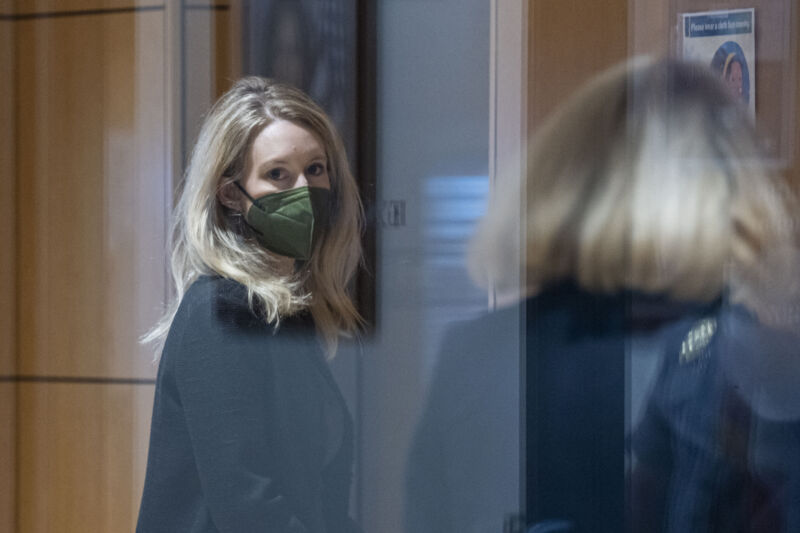
The prosecution had an up-and-down day in court yesterday during the criminal trial of Elizabeth Holmes, the founder of failed medical diagnostic startup Theranos.
Judge Edward Davila ruled that a witness that the prosecution had flown in from out of state wouldn’t be able to take the stand. The onetime Theranos patient identified in court documents as “B.B.” was supposed to testify about “suspicious” test results he received in 2015. Holmes’ attorneys had filed a motion last week to block his testimony, saying that the test in question, a complete blood count, wasn’t included in a list of 25 tests that the government claimed Theranos couldn’t consistently or accurately produce results for.
The judge agreed, saying that because the test wasn’t included in court documents, Holmes’ attorneys wouldn’t have time to prepare an adequate defense. Assistant US attorney John Bostic admitted that prosecutors were “confused.” They thought that B.B. had taken a test for blood clotting, which was included in court documents. Bostic said the patient was likely to testify about whether he had symptoms related to an elevated platelet count.
“It sounds like the government may have been confused about which tests it was charging,” Holmes’ attorney Katherine Trefz said. “That is not our fault.”
Platelets are important to the clotting process, and while both tests may provide insight into a clotting-related condition, there is a difference between the two. Judge Davila didn’t excuse the mistake.
As a result of the error, the prosecution now won’t have testimony to support one of the charges of wire fraud, which cited a “telephone call from patient B.B. to Theranos regarding laboratory blood test results.” Without that, Holmes still faces nine counts of wire fraud and two counts of conspiracy to commit wire fraud.
Lack of transparency
The witnesses who did take the stand yesterday, though, appeared to bolster the government’s case. The first was Chris Lucas, whose venture capital firm Black Diamond invested over $2 million in two investments in 2006 and another $5.4 million in December 2013. Lucas’ uncle, investor Donald Lucas, was chairman of Theranos’ board until 2012.
Lucas was impressed with Holmes. “She was very passionate about the project. Very sincere about what she was trying to do. She worked all the time. It was all Theranos, all the time for Elizabeth.” He said he met with her four to five times a year, and in those meetings, he didn’t hear any bad news about the company. “There was not a lot of transparency,” he said.
Lucas acknowledged during cross-examination by the defense that he hadn’t hired a firm to conduct any due diligence, saying that he was following his uncle’s philosophy. Investing, he said, wasn’t always about the financials, “it’s always about the people.” He added that his uncle’s experience with the company helped shape his decision to invest, as did his own experience with Holmes. https://arstechnica.com/?p=1810693

